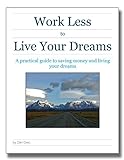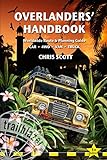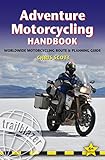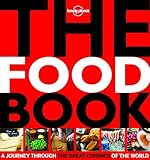Difference between revisions of "Malaysia"
(Added missing informations about the required ICP) |
|||
| Line 12: | Line 12: | ||
'''Correct as of: <span style="color:red">March 2016</span>'''<br /> | '''Correct as of: <span style="color:red">March 2016</span>'''<br /> | ||
Starting 15 August 2015, all foreign vehicles are advised to register for Vehicle Entry Permit (VEP) with the Road Transport Department of Malaysia via online before entering Malaysia.<br /> | Starting 15 August 2015, all foreign vehicles are advised to register for Vehicle Entry Permit (VEP) with the Road Transport Department of Malaysia via online before entering Malaysia.<br /> | ||
| − | Please do visit [https://vep.jpj.gov.my/ Road Transport Department of Malaysia] for online registration. | + | Please do visit [https://vep.jpj.gov.my/ Road Transport Department of Malaysia] for online registration - which is still not possible (as of May 2017).<br> |
| + | Instead, all foreign vehicles are required to have the International Circulation Permit (ICP). This can be obtained directly at the border (needs verification!) or from the Automobile Association Malaysia (AAM) (proved). | ||
'''Border Crossings''' | '''Border Crossings''' | ||
| Line 47: | Line 48: | ||
* Vehicle registration (original and 1 copy) | * Vehicle registration (original and 1 copy) | ||
* A [[Carnet de Passage]] is mandatory. | * A [[Carnet de Passage]] is mandatory. | ||
| + | <br> | ||
| + | For the International Circulation Permit (ICP) you need: | ||
| + | * Local insurance (valid insurances from outside Malaysia are not accepted!) | ||
| + | * Copy of ICP form | ||
| + | * Copies of Carnet De Passage (Front Cover and Page 1 to Page 2) | ||
| + | * Copy of Vehicle Owner Passport | ||
| + | * Copy of Vehicle Owner Registration Card | ||
| + | * Copy of Vehicle Owner Valid Driver License | ||
| + | * Copy of Vehicle Owner Valid International Driving Permit | ||
| + | * Copies of Vehicle Previous and Current Insurance Policy | ||
| + | * Soft copy or Original Photographs of Vehicle | ||
| + | * ICP cost RM150 | ||
| + | Hint: If you miss to get the ICP at the border (I did), the only place to get it is in Kuala Lumpur at the Automotive Association Malaysia (AAM). They are very helpful and you can send all those documents to them by mail (but call, they often do have problems with their mailing system and do not get mails; avoid huge attachments as well). Should you get stopped on your way and get asked for your ICP (which is extremely unlikely, usually they only ask for it when an accident happens or when you ship over to Borneo), explain them, that you are on your way to the AAM and that is already issued.<br> | ||
| + | <br> | ||
| + | Automotive Association Malaysia<br> | ||
| + | Jabatan Pengangkutan Jalan<br> | ||
| + | Aras 3-5, No. 26,<br> | ||
| + | Jalan Tun Hussien, Presint 4,<br> | ||
| + | Pusat Pentadbiran Kerajaan Persekutuan,<br> | ||
| + | 62100 WP Putrajaya<br> | ||
| + | 2.912581, 101.685066<br> | ||
| + | ratedesilva@gmail.com<br> | ||
| + | klcheong92@gmail.com<br> | ||
| + | Tel: +60355104700<br> | ||
| + | Tel: +60355111932<br> | ||
| + | Tel: 1-300-226-226 (only callable from a local phone/mobile, international numbers are blocked by 1-300 numbers!)<br> | ||
| + | <br> | ||
==Process at border== | ==Process at border== | ||
'''Shipping to Malaysia:''' [http://www.aseantex.com.my www.aseantex.com.my] acted as our agents on the Malaysian side. They are good people who also overland. | '''Shipping to Malaysia:''' [http://www.aseantex.com.my www.aseantex.com.my] acted as our agents on the Malaysian side. They are good people who also overland. | ||
| + | |||
| + | '''Land Crossing:''' | ||
| + | Straight forward, but try to get a local insurance directly at the border, which is required for the International Circulation Permit (ICP). Getting a time limited local insurance later is only possible directly at the Automotive Association Malaysia (AAM); no other insurance company gives out insurances shorter than a year! | ||
'''Immigration'''<br /> | '''Immigration'''<br /> | ||
Revision as of 12:34, 6 May 2017
Currency to display:
Contents
- 1 Visiting Malaysia
- 2 Entering Malaysia with a Car or Motorbike
- 3 Driving in Malaysia
- 4 Gas and Diesel price in Malaysia
- 5 Safety and Security Considerations
- 6 Camping in Malaysia
- 7 Navigation
- 8 Special Overland Travel interests
- 9 Vehicle Maintenance
- 10 Buy or sell a car or motorbike in Malaysia
- 11 References
- 12 Helpful External links
Visiting Malaysia
Malaysia consists of the West Malaysia or formerly known as the Malay Peninsular and East Malaysia divided by the South China Sea. The West Malaysia that also host the nation's capital Kuala Lumpur is connected to the Asia landmass bordering with Thailand on the north and the island state of Singapore at its southern tip. Across the South China Sea, East Malaysia consists of the Malaysian states of Sabah and Sarawak that occupies the Island of Borneo with sovereign state Brunei and Indonesia's district of Kalimantan.
Malaysia is an economically and politically stable country, relatively. So the general ambience is peaceful and friendly, and are quite welcoming to tourists and visitors. Being a multiracial and multi cultural country, the Malay Language which is the national language is the most widely spoken, with Cantonese, Hokkien, Tamil, Iban, Dusun, etc. are popular among the respective ethnic groups. Luckily, English is the second language and commonly used in business and corporate environment and a safe estimate of 65% of the population can understand English.
Although the majority of the population is predominantly Sunni Muslims, other religions such as Christianity, Buddhism, Hinduism, etc. are commonly practiced in Malaysia. Places of worships of each faith are commonplace throughout the countryside.
Entering Malaysia with a Car or Motorbike
Correct as of: March 2016
Starting 15 August 2015, all foreign vehicles are advised to register for Vehicle Entry Permit (VEP) with the Road Transport Department of Malaysia via online before entering Malaysia.
Please do visit Road Transport Department of Malaysia for online registration - which is still not possible (as of May 2017).
Instead, all foreign vehicles are required to have the International Circulation Permit (ICP). This can be obtained directly at the border (needs verification!) or from the Automobile Association Malaysia (AAM) (proved).
Border Crossings
You can drive into Malaysia via these official land border crossings:
In the north of West Malaysia, border with Thailand:
- Between Wang Kelian, Perlis and Wang Prachan, Satun Province.
- Between Padang Besar, Perlis and Padang Besar in Thailand.
- Between Bukit Kayu Hitam, Kedah and Ban Dan Nok in Sadao District of Songkhla Province. This is the primary crossing for commercial traffic and filled with heavy vehicles and is the busiest land crossings between the 2 countries.
- Between Pengkalan Hulu, Perak and Betong, Yala Province. A small but busy crossing for regional trade and local farmers.
- Between Bukit Bunga, Jeli district of Kelantan and Ban Buketa in Waeng District, Narathiwat Province
- Between Rantau Panjang in Kelantan and Su-ngai Kolok District, Narathiwat Province.
- Between Durian Burung in Kuala Nerang, Kedah and Ban Prakob in Na Thawi, Songkhla Province.
In the south of the Malay Peninsula, border with Singapore:
- Between Johor Bahru, Johor and Woodlands, Singapore. The Woodlands Causeway is the busiest of all border crossings into Malaysia mostly due to its proximity to the state capital Johore Bahru and slightly cheaper toll charge.
- Between Tanjung Kupang, Johor and Tuas, Singapore. The lesser used Tuas Link is preferred by those traveling directly further north of the Peninsular.
In East Malaysia, border with Indonesia:
- Between Tebedu, Sarawak and Entikong, West Kalimantan. The crossing is along the main route between Kuching, the capital of Sarawak, and Pontianak, the capital of West Kalimantan.
- Between Biawak, Sarawak and Aruk, Sambas, West Kalimantan.
In East Malaysia, border with Brunei:
- Between Sungai Tujuh in Miri, Sarawak and Sungai Tujoh, Kuala Belait
- Between Tedungan in Limbang, Sarawak and Kuala Lurah, Bandar Seri Begawan
- Between Pandaruan in Limbang, Sarawak and Puni, Temburong. This crossing was previously serviced by a vehicular ferry across the Pandaruan River which is now replaced by a Malaysia-Brunei Friendship Bridge which was opened on 8 December 2013.
- Between Mengkalap in Lawas, Sarawak and Labu, Temburong. and Lawas
Required Paperwork
To bring your vehicle into Malaysia, please have the following documents and several copies of each ready. If these documents are not in English, it is prudent to have a translation of the respective document at hand and in multiple copies.
- Passport of registered owner (original and 1 copy)
- Drivers license of registered owner (original and 1 copy)
- Vehicle registration (original and 1 copy)
- A Carnet de Passage is mandatory.
For the International Circulation Permit (ICP) you need:
- Local insurance (valid insurances from outside Malaysia are not accepted!)
- Copy of ICP form
- Copies of Carnet De Passage (Front Cover and Page 1 to Page 2)
- Copy of Vehicle Owner Passport
- Copy of Vehicle Owner Registration Card
- Copy of Vehicle Owner Valid Driver License
- Copy of Vehicle Owner Valid International Driving Permit
- Copies of Vehicle Previous and Current Insurance Policy
- Soft copy or Original Photographs of Vehicle
- ICP cost RM150
Hint: If you miss to get the ICP at the border (I did), the only place to get it is in Kuala Lumpur at the Automotive Association Malaysia (AAM). They are very helpful and you can send all those documents to them by mail (but call, they often do have problems with their mailing system and do not get mails; avoid huge attachments as well). Should you get stopped on your way and get asked for your ICP (which is extremely unlikely, usually they only ask for it when an accident happens or when you ship over to Borneo), explain them, that you are on your way to the AAM and that is already issued.
Automotive Association Malaysia
Jabatan Pengangkutan Jalan
Aras 3-5, No. 26,
Jalan Tun Hussien, Presint 4,
Pusat Pentadbiran Kerajaan Persekutuan,
62100 WP Putrajaya
2.912581, 101.685066
ratedesilva@gmail.com
klcheong92@gmail.com
Tel: +60355104700
Tel: +60355111932
Tel: 1-300-226-226 (only callable from a local phone/mobile, international numbers are blocked by 1-300 numbers!)
Process at border
Shipping to Malaysia: www.aseantex.com.my acted as our agents on the Malaysian side. They are good people who also overland.
Land Crossing: Straight forward, but try to get a local insurance directly at the border, which is required for the International Circulation Permit (ICP). Getting a time limited local insurance later is only possible directly at the Automotive Association Malaysia (AAM); no other insurance company gives out insurances shorter than a year!
Immigration
After crossing the no-mans land and entering into the custom/immigration complex, you need to present these documents:
- Passports
- Malaysian Arrival/Departure card
- Currency declaration form
If you have not fill up these forms, pull over before the booth and walk up to the first booth to get some forms.
Customs After immigration you should proceed on through customs. All cars are required to stop and open their boot/trunk. If your boot is full of luggage, you may be asked what you are carrying. The customs guys are polite and efficient and do understand English. If requested, produce the passport, drivers license, vehicle registration and the carnet.
Cost of entry
The Vehicle Entry Permit (VEP) requires an administration fee of RM10.00 MYR to be paid during tag collection, and the VEP is renewable every five years. Foreign registered vehicles entering from Singapore will also be charged an additional RM20.00 MYR.
Permitted length of stay
By default, all (VEP) registered foreign vehicles entering Malaysia is allowed to remain in Malaysia for 90 days.
Extension of stay
Request for extension of stay can be made directly at any Malaysian Road Transport Department office in the country.
Storing a vehicle and temporarily leaving the country
Describe if/how a vehicle can be stored, and for how long.
Also mention if the owner / temporary importer can leave the country while the vehicle is in storage.
Exiting with a vehicle
At the border checkpoint, drive slowly into the immigration booth, present your passport, arrival card and currency declaration form. Processing takes no more than a couple of minutes. Then drive slowly to the custom booth, follow the instructions. You may need to present the vehicle registration and your Carnet. You may be required to stop and open your boot/trunk and asked if you have anything to declare.
Driving in Malaysia
Recommended books for Overlanding in Malaysia
Travel insurance for Malaysia
World Nomads offer the most flexible Travel Insurance at the best prices for multi-country / multi-year trips. You can buy, extend and claim online, even after you've left home.
Vehicle insurance requirements
Yes or No if insurance is mandatory, and what kind is acceptable.
Cost of vehicle insurance
State the price of insurance and a time period.
Where to purchase vehicle insurance
Describe where insurance can be purchased.
Driving license
International Driving Permit is required, together with a valid driver license or permit from one's country of origin. Vehicle registration cards or proof of ownership should also be at hand always. If any of these documents are in languages other than English, it would be helpful to have them translated into English on separate copies and stored with the originals.
Driving side of road
Malaysians drive on the left side of the road.
Left hand drive vehicle can be driven in Malaysia, but must display sign or sticker stating "Left Hand Drive".
Mandatory items in vehicle
State any mandatory items that must be carried in the vehicle. (i.e. safety triangle, first aid kit, fire extinguisher, etc.)
Roads
General Road quality
The road network in Malaysia is generally wide, paved and well maintained. In major cities one way streets are common due to higher congestion.
In West Malaysia several highway (freeway) systems link the big cities, especially on the West Coast of the Peninsular. The East Coast has less denser traffic and more pleasant to drive along its scenic coastal roads. Well maintained two-lane paved roads connects the smaller towns.
In East Malaysia, the road system in major cities are also paved and well maintained. But the road into the rural areas are still being developed. Currently construction of a 2,038 km Pan Borneo Highway is under way that will connect north Borneo state of Sabah with Sarawak in the south. The Pan Borneo Highway will run along the entire length of East Malaysia and will also connect with the sovereign state of Brunei along its way.
Road signs
Road signs in Malaysia are clear and abundant. Speed limits are also clear and as common as speed cameras. Road signs will provide information on what's ahead, distance to the next town, next fuel station, hospitals, etc.
Toll roads
In and around the capital Kuala Lumpur, toll roads are common and quite expensive. There's a major interstate highway that runs along the entire west coast of West Malaysia connecting from Bukit Kayu Hitam border crossing in the north; all the way down to the Causeway.
Road signs in blue means free roads, road signs for toll highways are displayed in green.
In some cases it is quite possible to avoid tolls, but expect your journey to take up to twice as long depending on traffic.
All highways accept the pre-paid "Touch N Go" cards that you can purchase and reload at petrol stations and convenient stores. Although some highways are still cash-based, nowadays more and more are being turned into cashless that requires Touch N Go to pass through.
Bribery in Malaysia
The Royal Malaysian Police Force is a centralized professional law enforcement organization that polices the entire country. In Malaysia the police don't just wave cars down to demand money. If you are stopped by the police, it either means that you've wandered into an area where you were not supposed to be or that they must have detected that a traffic offense has been committed.
Checkpoints
Malaysia is generally a peaceful country and as such, military and police checkpoints is very uncommon. There may be some security checkpoints near border crossings to curb smuggling activities and illegal immigrants. But these checkpoints should be a breeze for tourists and travelers.
Police roadblocks are frequently conducted around urban areas to check motorists for traffic offenses.
General unwritten rules to behave at these roadblocks is to slow down, wind down your window when reaching the officers and follow their instructions. Usually a smile and a friendly greeting will get you by smoothly.
Traveling with pets
Most hotels have clear policies against having pets in their premises - but please ask in advance, perhaps an arrangement can be made. Temporary pet accommodation is offered by most vet clinics and pet supplies stores. There is no restrictions on having pets in the vehicle, though it is recommended that pets are secured so as to not provide a distraction or hazard. Most business establishments, especially places where food and drink are served or prepared, forbid pets inside.
Gas and Diesel price in Malaysia
Last updated: March 2016
In Malaysia, petrol fuel is available in two variants: RON 97, a high-octane premium unleaded petrol; RON 95, a lower octane unleaded petrol. RON is the abbreviation used for 'Research Octane Number'.
Fuel prices in Malaysia is revised on a monthly basis to reflect the fluctuating global oil price. The price for the month will be announced by the government on the first of every month.
Currency and unit to display:
| Gasoline Grade | Price |
|---|---|
| Unleaded RON 97 | RM1.95 MYR per Liter |
| Unleaded RON 95 | RM1.60 MYR per Liter |
| Diesel | RM1.35 MYR per Liter |
Gas and Diesel Availability / Frequency
In West Malaysia, petrol stations are extremely common and petrol shortages are nonexistent. You can find petrol station everywhere, either in major cities or outside, you can find them less than 100 km apart and sometimes you can find up to 3 or 4 stations side by side.
In East Malaysia, petrol stations are very common in the cities. In rural areas you can still find petrol station near small towns, but it would be prudent to carry extra fuel in a auxiliary container.
The two most common petrol stations encountered are Petronas and Shell.
Gas and Diesel Quality
Currently, fuels in Malaysia comply to Euro 2 standard.
Safety and Security Considerations
Driving at night
Driving at night is safe in the cities and around them. In rural areas be watchful for occasional cows or buffaloes loitering in the middle of the road.
When driving along back roads through the jungle, be careful to watch for wildlife, particularly the endangered Malayan Tapirs and elephants. There will usually be signs on main roads where wildlife are common.
Vehicle parking
Discuss if vehicles can be parked on the street, if they are considered "safe" at night. If vehicles can not be parked on the street, list the other options that exist.
Special driving considerations
A List of special things to be careful of (i.e. Unsigned speed bumps, abnormal road rules, people or animals on the road, etc.).
List any roads that are not recommended to drive for safety or other security reasons.
Security advisories and information
- Country Specific Information - U.S. Department of State
- Travel Reports and Warnings - Foreign Affairs and International Trade Canada
- Travel advice by country - Foreign and Commonwealth office (U.K.)
- Travel Advice for Malaysia - Australian Department of Foreign Affairs and Trade
Camping in Malaysia
Describe if organized "pay" camping is common. List the facilities commonly found at these campsites.
List the approximate average price range of camping in organized campgrounds.
Also discuss the possibility of "wild" or "roadside" camping. How common is it? Is it considered safe, or a bad idea.
Camping guide books
List and link to books specifically for camping.
Drinking water
Tap water is clear and clean but recommend to boil it before drinking. Bottled water is easily bought over any convenient store or hypermarket.
Paper maps
Reise Know-How are amoung the best paper maps. Purchase paper maps before arriving in Malaysia
GPS Maps of Malaysia
Most widely used dedicated GPS vehicle navigation devices are Tomtom, Papago and Garmin. Updated maps for Malaysia and other South East Asia countries can be obtained from MyAseanFreeMaps a Malaysian GPS user support group that are the main contributors for Garmin's official map.
Navigation apps "Waze" is the most popular navigation app used by Malaysian smartphone users because it provides real time user-fed traffic reports, suggest alternate routes, etc. Google Maps are quite accurate and up to date too and widely used. Unfortunately these free apps require constant data service.
GPS co-ordinates for camping, propane, gas, repairs, etc. in Malaysia
- iOverlander is a website and iPhone application designed by Overlanders, for Overlanders. It contains GPS co-ordinates and reviews for camping, hotels, propane, water, mechanics, borders and much more.
Special Overland Travel interests
List any special items / places that are popular with Overlanders
Vehicle Maintenance
Dealers
4x4s / Trucks
- Toyota Global Dealer Locator
- Land Rover International Dealer Locator
- Mercedes Benz International (select country on bottom right)
- Jeep International site locator
Motorbikes
Local Garages
Add known good mechanics here.
Buy or sell a car or motorbike in Malaysia
Buy
Describe how a foreigner can buy a vehicle.
List any difficulties or limitations on where the vehicle can be driven.
Sell
Describe how a foreigner can sell a foreign-plated vehicle, or list not possible.'
References
Links to the source of any information - blogs or discussion forums, etc.
Helpful External links
Add any helpful external links here.
- Malaysia: Visa and Passport requirements | World Travel Guide
- Health Information for Travelers to Malaysia - Center for Disease Control and Prevention
- Malaysia travel guides at wikivoyage
- Malaysia - Wikipedia, the free encyclopedia








